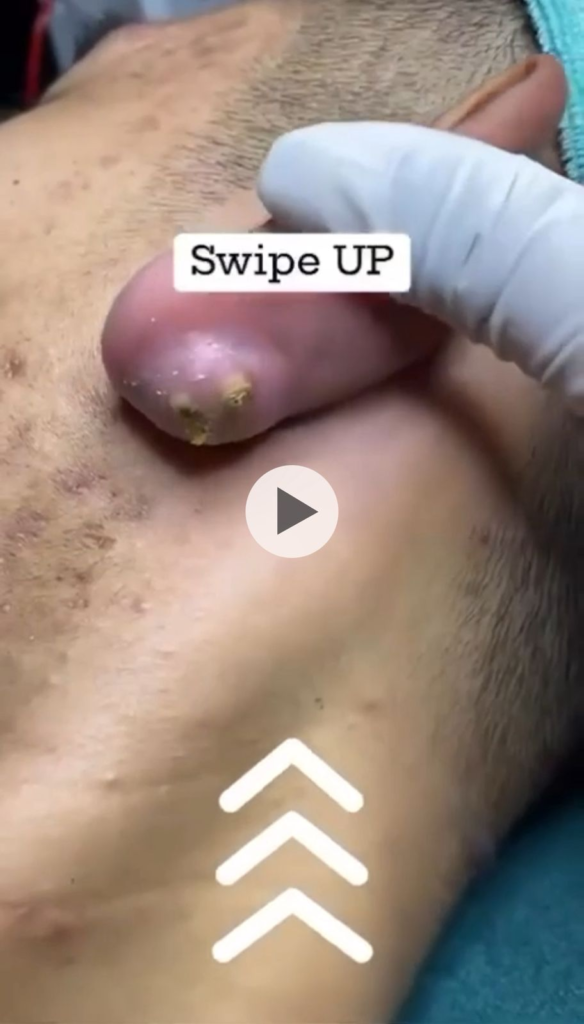Pus Coming Out of the Ear? 10 Powerful Tips to Treat & Prevent Ear Discharge Naturally WATCH FULL VIDEO SCROLL DOWN


Have you noticed a thick, yellowish or white fluid oozing out of your ear? Does it smell bad or cause discomfort, itching, or pain? If yes, you might be dealing with ear pus discharge—medically known as purulent otorrhea. It’s a clear sign that something’s wrong inside your ear, often caused by an infection, injury, or an untreated condition.
But don’t panic! With the right care and attention, you can manage and even prevent this condition effectively at home—while knowing when it’s time to seek medical help.
🧠 What is Pus Coming Out of the Ear?

Pus is a thick fluid made up of white blood cells, dead tissue, and bacteria. When your ear gets infected—especially the middle or outer ear—the immune system reacts, and pus is produced. This discharge can come out of the ear canal and may be:
🔟 Best Tips to Treat & Prevent Pus Discharge from the Ear
Here are 10 home-friendly, effective, and smart tips to manage pus coming out of your ear:
1. Keep the Ear Clean and Dry

Gently clean the outside of the ear using a clean cotton pad or soft cloth. Avoid inserting earbuds or tissues inside the ear canal—it may push the infection deeper or rupture the eardrum.
2. Use Warm Compresses

A warm cloth placed over the infected ear can reduce pain and encourage natural drainage. Don’t apply heat for more than 10 minutes at a time.
3. Avoid Water Exposure

Do not let water enter the ear while bathing or swimming. Use a shower cap or waterproof earplugs to protect the ear from further irritation.
4. Garlic Oil Drops (Natural Antibiotic)

Garlic has antimicrobial properties. Slightly warm garlic-infused oil and place 1–2 drops into the affected ear (only if eardrum is intact). This helps kill bacteria and reduce inflammation.
5. Tea Tree Oil + Olive Oil

Mix a few drops of tea tree oil with warm olive oil. Use a dropper to insert 2–3 drops in the infected ear. Tea tree oil is anti-bacterial and can soothe irritation.
6. Apple Cider Vinegar Solution

Mix equal parts of apple cider vinegar and warm water. Soak a cotton ball in it and place gently at the entrance of the ear (not deep inside). This restores pH balance and fights bacteria.
7. Elevate Your Head While Sleeping

Sleeping with your head slightly elevated helps pus drain out naturally and reduces pressure buildup inside the ear.
8. Avoid Using Earbuds or Headphones

Inserting anything into the infected ear can worsen the condition. Give your ears a break and let them breathe.
9. Don’t Use Random Antibiotics Without Doctor’s Advice

Over-the-counter antibiotics or drops should only be used if prescribed. Incorrect medication can worsen the infection or damage the eardrum.
10. Visit an ENT Specialist if It Lasts More Than 2 Days

If the discharge continues, smells foul, causes hearing loss, or is mixed with blood, seek medical help immediately. You may need prescription antibiotics, a professional cleaning, or further testing.
❗What You Should NOT Do
- ❌ Don’t try to suck or squeeze the pus out
- ❌ Don’t pour water or hydrogen peroxide inside
- ❌ Don’t insert earbuds or cotton swabs
- ❌ Don’t delay treatment for more than 48 hours
🩺 When to Worry?
You should visit a doctor urgently if:
- The pus is green or foul-smelling
- There is high fever or dizziness
- Blood is mixed with the discharge
- You feel a buzzing or ringing sound (tinnitus)
- You have sudden hearing loss
- The pus has continued for more than 2-3 days
✅ Final Words
Pus coming out of the ear is not something to ignore. Whether it’s caused by an infection or trauma, early attention and proper care can save you from serious complications. Most mild cases can be managed at home, but knowing when to stop home remedies and consult a professional is key.
